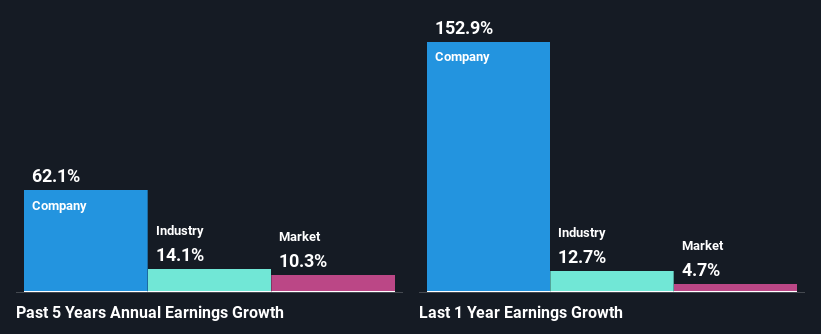Evd Berhad's (KLSE:EVD) Stock Has Shown Weakness Lately But Financial Prospects Look Decent: Is The Market Wrong?

With its stock down 12% over the past week, it is easy to disregard Evd Berhad (KLSE:EVD). However, stock prices are usually driven by a company’s financials over the long term, which in this case look pretty respectable. Specifically, we decided to study Evd Berhad's ROE in this article.
Return on Equity or ROE is a test of how effectively a company is growing its value and managing investors’ money. In short, ROE shows the profit each dollar generates with respect to its shareholder investments.
View our latest analysis for Evd Berhad
How To Calculate Return On Equity?
ROE can be calculated by using the formula:
Return on Equity = Net Profit (from continuing operations) ÷ Shareholders' Equity
So, based on the above formula, the ROE for Evd Berhad is:
4.0% = RM5.1m ÷ RM128m (Based on the trailing twelve months to June 2023).
The 'return' is the yearly profit. That means that for every MYR1 worth of shareholders' equity, the company generated MYR0.04 in profit.
What Has ROE Got To Do With Earnings Growth?
So far, we've learned that ROE is a measure of a company's profitability. We now need to evaluate how much profit the company reinvests or "retains" for future growth which then gives us an idea about the growth potential of the company. Assuming everything else remains unchanged, the higher the ROE and profit retention, the higher the growth rate of a company compared to companies that don't necessarily bear these characteristics.
Evd Berhad's Earnings Growth And 4.0% ROE
As you can see, Evd Berhad's ROE looks pretty weak. Even when compared to the industry average of 7.2%, the ROE figure is pretty disappointing. However, we we're pleasantly surprised to see that Evd Berhad grew its net income at a significant rate of 62% in the last five years. Therefore, there could be other reasons behind this growth. For example, it is possible that the company's management has made some good strategic decisions, or that the company has a low payout ratio.
We then compared Evd Berhad's net income growth with the industry and we're pleased to see that the company's growth figure is higher when compared with the industry which has a growth rate of 14% in the same 5-year period.

Earnings growth is a huge factor in stock valuation. It’s important for an investor to know whether the market has priced in the company's expected earnings growth (or decline). This then helps them determine if the stock is placed for a bright or bleak future. Is Evd Berhad fairly valued compared to other companies? These 3 valuation measures might help you decide.
Is Evd Berhad Using Its Retained Earnings Effectively?
Evd Berhad doesn't pay any dividend to its shareholders, meaning that the company has been reinvesting all of its profits into the business. This is likely what's driving the high earnings growth number discussed above.
Summary
On the whole, we do feel that Evd Berhad has some positive attributes. Even in spite of the low rate of return, the company has posted impressive earnings growth as a result of reinvesting heavily into its business. While we won't completely dismiss the company, what we would do, is try to ascertain how risky the business is to make a more informed decision around the company. To know the 3 risks we have identified for Evd Berhad visit our risks dashboard for free.
Valuation is complex, but we're here to simplify it.
Discover if Evd Berhad might be undervalued or overvalued with our detailed analysis, featuring fair value estimates, potential risks, dividends, insider trades, and its financial condition.
Access Free AnalysisHave feedback on this article? Concerned about the content? Get in touch with us directly. Alternatively, email editorial-team (at) simplywallst.com.
This article by Simply Wall St is general in nature. We provide commentary based on historical data and analyst forecasts only using an unbiased methodology and our articles are not intended to be financial advice. It does not constitute a recommendation to buy or sell any stock, and does not take account of your objectives, or your financial situation. We aim to bring you long-term focused analysis driven by fundamental data. Note that our analysis may not factor in the latest price-sensitive company announcements or qualitative material. Simply Wall St has no position in any stocks mentioned.
About KLSE:EVD
Evd Berhad
An investment holding company, provides information and communications technology (ICT) system solutions for transportation infrastructure in Malaysia and Philippines.
Adequate balance sheet slight.
Market Insights
Community Narratives





